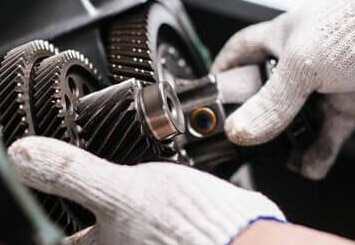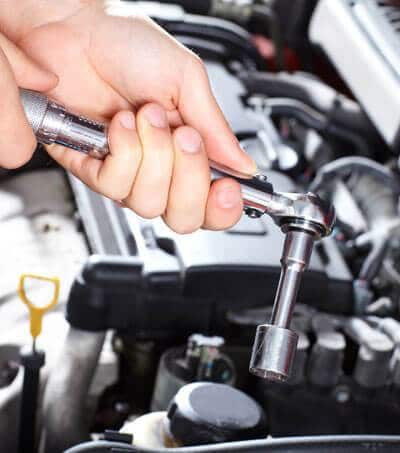


Hearing strange noises when shifting gears? Whether you’re experiencing a high-pitched whine, a harsh grind, or a heavy clunk, unusual sounds during gear changes are a red flag that shouldn’t be ignored. They often indicate transmission problems—some minor, others more serious.
In this in-depth guide, we’ll explore the common types of gear-shifting noises, what causes them, how they’re diagnosed, and what repairs might be necessary. Whether you drive an automatic, manual, or CVT, understanding these noises can help prevent expensive repairs and extend your vehicle’s lifespan.
Your vehicle’s transmission system is responsible for converting engine power into motion. When the system starts making abnormal noises during gear changes, it’s usually due to a lack of lubrication, worn components, or electronic control issues. Ignoring these symptoms can lead to:
Early detection and proper diagnosis can help you avoid significant repair bills and extend the life of your transmission.
The type of noise you hear is the first major clue in diagnosing what’s wrong with your transmission. Here are the most common noises drivers experience when shifting gears and what they typically indicate.
Manual transmission vehicles often produce grinding sounds when the clutch is worn or the synchronizers are failing. This sound typically occurs when shifting into first, second, or reverse. If it’s difficult to engage a gear without grinding, your clutch may not be fully disengaging.
Automatic transmissions may grind due to internal gear wear, damaged clutch packs, or fluid contamination. If you notice a grinding sound combined with delayed shifts, you could be facing internal component damage.
A high-pitched whining or humming noise is often a sign of:
This noise typically increases with engine speed or vehicle acceleration and may be more noticeable in certain gears or when switching between drive and reverse.
A clunking noise when shifting into drive or reverse is usually caused by loose or broken components, including:
Clunking is often the result of sudden torque transfer in a system that’s become unstable or misaligned. It can also signal a delay in gear engagement caused by a malfunctioning transmission control module.
Now that we’ve broken down the types of noises, let’s explore what’s going on under the hood when these noises occur.
This is the most common cause of whining, grinding, or hard shifting. Transmission fluid lubricates and cools moving parts. Over time, it can become dirty or degrade, especially if maintenance is neglected.
Symptoms include:
The torque converter connects the engine to the transmission in automatic vehicles. If damaged, it may cause:
In both manual and automatic transmissions, bearings support the transmission shafts. When they wear out, you may hear whining, grinding, or rattling noises that vary with RPMs. In manuals, worn synchronizers can cause grinding as well.
Transmission and engine mounts hold the drivetrain in place. If these are cracked or loose, the transmission can shift under load—causing knocking, clunking, or banging noises during shifts.
Noises when shifting or accelerating could also originate from:
These issues produce noises that mimic transmission problems, especially during tight turns or gear changes.
Proper diagnosis is crucial to avoid misidentifying the root issue. Here’s how professional transmission repair shops like Mister Transmission handle diagnostics:
Technicians drive the vehicle under different conditions to replicate the sound. They note:
They examine:
Fresh fluid should be:
Dark fluid or the presence of metal shavings suggests internal wear or failure.
Modern vehicles include transmission control modules (TCM). By scanning for error codes (e.g., P0700, P0730, P0715), technicians can pinpoint electrical or hydraulic faults within the system.
Depending on what the diagnosis reveals, repairs can range from minor to extensive.
Regular maintenance is key to avoiding major transmission issues. Here’s how to keep your system healthy:
Follow your owner’s manual schedule. For most vehicles, that’s every 50,000 to 100,000 km.
Using the wrong type can damage sensitive internal components and lead to erratic shifting.
Address slipping, whining, or hesitation promptly before they become more expensive problems.
Heavy loads increase transmission stress, especially in vehicles not designed for towing.
Having your transmission checked annually can help identify issues early and avoid breakdowns.
Don’t ignore noises when shifting gears—they rarely fix themselves and often worsen over time. Whether you’re dealing with a grinding manual transmission, a whining automatic, or a clunk in reverse, the professionals at Mister Transmission can help.
We offer:
Find a Mister Transmission near you
Schedule your free road test and inspection today!
Strange noises when shifting gears are often early signs of transmission trouble. Whether it’s a whine, grind, or clunk, diagnosing and repairing the issue early is your best defense against costly breakdowns and repairs.
Don’t wait—protect your investment, maintain your vehicle’s performance, and drive with confidence by having your transmission professionally inspected at the first sign of trouble.




The evolution of transmissions has made these machines and systems increasingly complex. When transmission repairs are required, determining the cause and cure for what ails can be tricky.
Read More
At Mister Transmission we have access to leading-edge diagnostic equipment, enabling us to offer you the fastest and most accurate findings about what’s going on inside your vehicle’s transmission.
Read More
Just as you have other parts of your car serviced, your transmission needs maintenance to ensure a long life and avoid transmission problems.
Read More